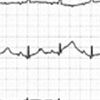
abstract: Subcutaneous allergen immunotherapy is clearly beneficial in the treatment of select patients with allergic rhinitis or asthma. However, this therapy is underused, partly because it requires administration in a medical facility. Sublingual immunotherapy (SLIT) may be a promising alternative; it appears to be associated with fewer adverse effects, which suggests that it might be administered at home. Currently, there is no FDA-approved formulation for SLIT in the United States. However, allergists are showing increased interest in this therapy, and an approved formulation may be available in the near future. A number of studies have shown the clinical efficacy of SLIT, but many questions remain unanswered, including the effective dose, optimal treatment schedules, and overall duration of treatment. (J Respir Dis. 2007;28(4):162-168)































































































































